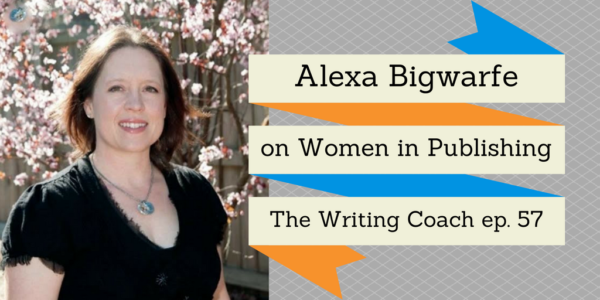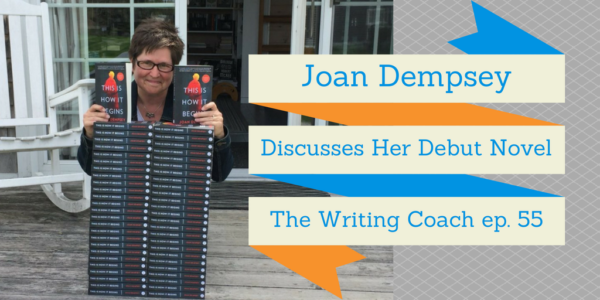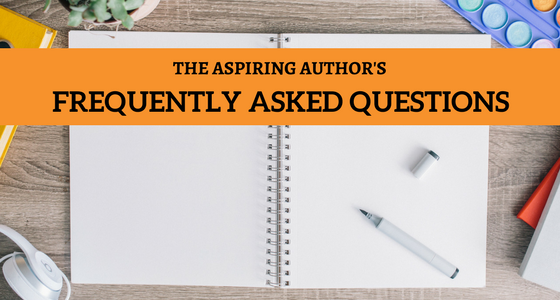Alexa Bigwarfe on Women in Publishing — The Writing Coach 057

Welcome to The Writing Coach. On this podcast, I speak with the instructors, editors, coaches, and mentors who help writers and authors create their art, build their audience, and sell their work. In episode #57 of The Writing Coach podcast, I speak with Alexa Bigwarfe. Alexa is an author, a coach, publisher, and digital publishing strategist. She is…
Joanna Penn of The Creative Penn — The Writing Coach 056

Welcome to The Writing Coach. On this podcast, I speak with the instructors, editors, coaches, and mentors who help writers and authors create their art, build their audience, and sell their work. In episode #56 of The Writing Coach podcast, I speak with Joanna Penn. Joanna is a New York Times and USA Today bestselling author of…
Joan Dempsey Discusses Her Debut Novel — The Writing Coach 055

Welcome to The Writing Coach. On this podcast, I speak with the instructors, editors, coaches, and mentors who help writers and authors create their art, build their audience, and sell their work. In ep. #55 of The Writing Coach podcast, writing instructor Joan Dempsey, who previously appeared in episode 38, returns to the show to discuss the launch…
Active Voice: The Easiest Way to Improve Your Writing

Using “active voice” is one of the easiest ways to improve the quality of your writing. Sentences written in active voice organize words so that the subject of the sentence is doing the action, not the object. For example, here’s a sentence written in active voice: Kevin ate the bananas. In this example, our protagonist…
The Secret to Getting Fit, Writing a Novel, and Achieving All Your Life’s Goals … FAST!

Recently, a client of mine grew frustrated. Her novel writing wasn’t moving along as swiftly as she would have liked. She’s a mom with a full-time job who just moved into a new home. She’s currently focusing on getting fit and healthy in addition to writing a novel, prepping a short story for a competition submission, and participating…
Your Book is Not Your Legacy

When the aspiring authors I work with are faced with a bout of writer’s block, I find it’s often the result of an intense stress they’re experiencing related to writing. Where does this stress come from? NOT from contractually obligated deadlines – most of the writers I work with are first-time authors who have not yet signed a…
FAQs for Aspiring Authors

Writing a novel requires authors to make thousands of decisions on a daily basis. Every time a writer sits down to draft, they have to make choices about what’s going to happen, the words they’re going to use, and a dozen other factors that will impact how the story is told. Unfortunately, many aspiring authors never get around to making…
4 Proven Methods for Tracking Your Writing Progress

How’s your work-in-progress coming along? Is your current approach to writing getting you the best results possible? Are you writing quicker these days, or are you slowing down? When will the book be done? Let’s face it . . . Answering these questions will be next to impossible if you aren’t tracking progress in some…
If You Have a Day Job, You’re Not a Real Writer

I’d like to think you weren’t fooled for a moment by this article’s utterly ridiculous headline. Unfortunately, through my work as a writing coach, I’ve learned many aspiring authors actually believe they’ll never be “real” writers until they can quit their day jobs. This is a complete falsehood. Your day job has nothing to do…
3 Brilliant Methods for Writing Extraordinary Scenes

It’s vitally important that authors know how to craft great scenes because scenes are the basic building block of narrative fiction. As I discussed in my article, The Difference between Scenes, Sequences, and Chapters, a scene is a continuous piece of action within a linear timeframe and (generally) contained to a single location. A leap…





